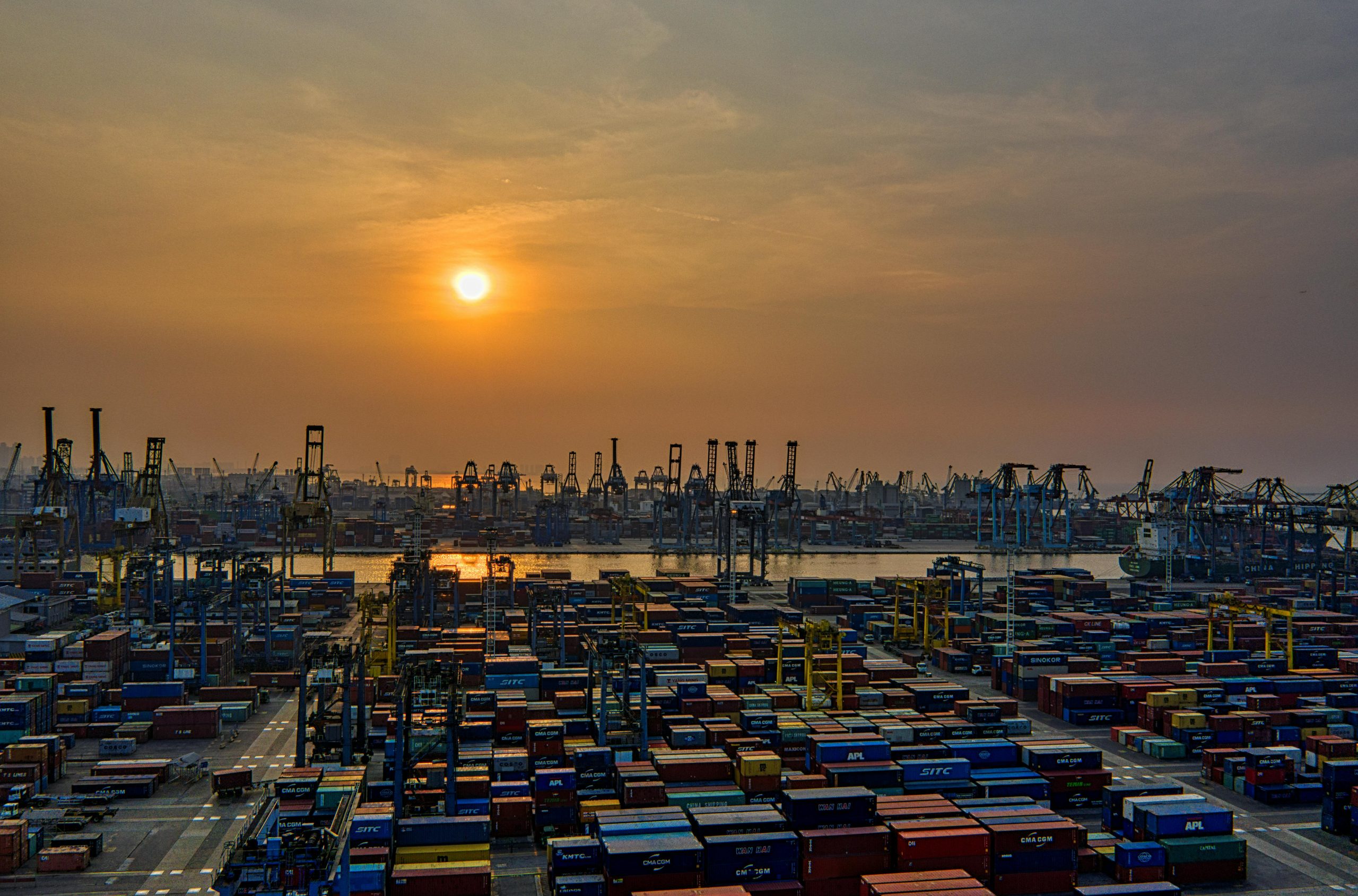Trends and the Future of Advanced Operations Logistics
Abstract
As global supply chains grow increasingly complex, advanced operations logistics is undergoing a transformation driven by emerging technologies and sustainability imperatives. This paper explores key trends shaping the sector, including automation, artificial intelligence, sustainability, blockchain, and digital twin technologies. Furthermore, it discusses the implications of these advancements for future logistics operations, highlighting the need for digital resilience, workforce adaptation, and strategic innovation.
1. Introduction
Operations logistics has become a critical component of competitive advantage in modern supply chains. With rapid technological innovation and growing global uncertainties, organisations must rethink traditional logistics frameworks and invest in advanced solutions to enhance visibility, efficiency, and adaptability (Christopher, 2022). This article reviews current trends and outlines future directions in the field of advanced operations logistics.
2. Automation and Robotics
Automation is revolutionising warehouse and transportation operations, particularly through the use of robotics and autonomous vehicles. Automated systems significantly reduce manual handling, increase throughput, and improve accuracy. McKinsey & Company (2023) reports that the adoption of warehouse automation technologies can reduce operational costs by up to 30%, while also addressing labour shortages and rising service expectations.
Collaborative robots, or “cobots”, are increasingly deployed alongside human workers to optimise logistics workflows. These machines offer flexibility in operations, allowing companies to scale up or down in response to fluctuating demand.
3. Artificial Intelligence and Predictive Analytics
Artificial Intelligence (AI) and Machine Learning (ML) are transforming how companies manage supply chain operations. These technologies enable advanced demand forecasting, predictive maintenance, and intelligent routing, thus improving both efficiency and customer satisfaction. According to Gartner (2024), over 50% of logistics firms have integrated AI-driven tools into their decision-making processes, enabling real-time visibility and proactive management of disruptions.
AI also contributes to dynamic inventory management by analysing customer trends and seasonal patterns, allowing businesses to optimise stock levels and reduce waste (Ivanov & Dolgui, 2020).
4. Sustainability and Green Logistics
Sustainability has become a strategic priority within operations logistics. In response to regulatory pressure and consumer demand, businesses are adopting green logistics practices, including electric fleets, biodegradable packaging, and carbon offsetting programmes. The UK Government’s Net Zero Strategy (2021) targets zero emissions from heavy goods vehicles by 2040, driving investment in low-emission technologies and infrastructure. Logistics firms are also using sustainability metrics to measure their carbon impact and enhance their corporate social responsibility profiles (McKinnon, 2021).
5. Blockchain for Transparency and Traceability
Blockchain offers a decentralised, secure method of recording and sharing data across logistics networks. By ensuring transparency and authenticity in every transaction, blockchain minimises the risk of fraud and enhances trust among partners (IBM, 2023). Real-time access to tamper-proof records can significantly reduce customs delays, improve compliance, and simplify audit processes. Use cases in pharmaceutical and food supply chains have demonstrated how blockchain can ensure provenance and product integrity throughout the journey (Saberi et al., 2019).
6. Digital Twins and Simulation Modelling
Digital twin technology enables the creation of virtual replicas of physical supply chains, allowing for the simulation of various operational scenarios. These models help organisations test different strategies, assess potential disruptions, and optimise performance before implementing changes in the real world. Deloitte (2024) found that companies using digital twins experienced a 25% improvement in operational continuity during disruption events. These insights are particularly valuable in an era of frequent global shocks, including pandemics, trade disruptions, and extreme weather events.
7. The Future Outlook
The future of advanced operations logistics lies in hyperconnectivity, driven by 5G, edge computing, and the Internet of Things (IoT). These technologies will facilitate real-time decision-making, enhance autonomous operations, and create highly responsive logistics ecosystems. However, challenges persist. These include data privacy concerns, cybersecurity risks, integration complexity, and the need for upskilling the workforce. Companies must invest not only in technology but also in organisational agility and human capital to thrive in the evolving logistics landscape (Wieland, 2021).
8. Conclusion
Advanced operations logistics is evolving at an unprecedented pace. The integration of automation, AI, blockchain, sustainability initiatives, and simulation tools is redefining industry norms. While technological adoption offers substantial benefits, its success will depend on strategic alignment, workforce readiness, and ethical governance. Future logistics operations will require a delicate balance between digital transformation and operational resilience to meet the demands of a fast-changing world.
References
Christopher, M. (2022). Logistics & Supply Chain Management. 6th ed. Harlow: Pearson Education.
Deloitte. (2024). Digital Twins: Driving Resilience in Logistics. [online] Available at: https://www2.deloitte.com [Accessed 6 Aug. 2025].
Gartner. (2024). AI Adoption in Supply Chain Operations. [online] Available at: https://www.gartner.com [Accessed 6 Aug. 2025].
IBM (2023). Blockchain in Supply Chains. [online] Available at: https://www.ibm.com/blockchain [Accessed 6 Aug. 2025].
Ivanov, D. and Dolgui, A. (2020). ‘A digital supply chain twin for managing the disruption risks and resilience in the era of Industry 4.0’, Production Planning & Control, 32(9), pp.775–788.
McKinsey & Company. (2023). Automation in Logistics: The Next Frontier. [online] Available at: https://www.mckinsey.com [Accessed 6 Aug. 2025].
McKinnon, A. (2021). Decarbonising Logistics: Distributing Goods in a Low-Carbon World. 2nd ed. London: Kogan Page.
Saberi, S., Kouhizadeh, M., Sarkis, J. and Shen, L. (2019). ‘Blockchain technology and its relationships to sustainable supply chain management’, International Journal of Production Research, 57(7), pp.2117–2135.
UK Government. (2021). Net Zero Strategy: Build Back Greener. [online] Available at: https://www.gov.uk/government/publications/net-zero-strategy [Accessed 6 Aug. 2025].
Wieland, A. (2021). ‘Dancing the Supply Chain: Toward Transformative Supply Chain Management’, Journal of Supply Chain Management, 57(1), pp.58–73.


